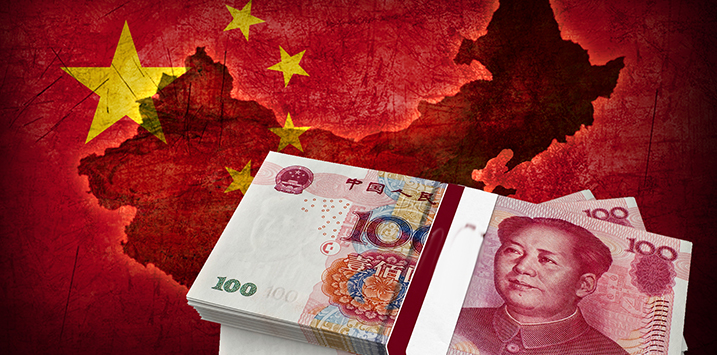Warning signs from China mean it’s time to check your exposure
When the Chinese government recently tightened capital controls to further reduce capital outflows, it sent a message to the world that all is not right with its currency. According to some analysts, China’s problems are big enough to seriously rattle global markets. For investors, it’s therefore time to check your portfolios for direct and indirect exposure to China and China-exposed businesses and industries.
EXCLUSIVE CONTENT
subscribe for free
or sign in to access the article
MORE BY RogerINVEST WITH MONTGOMERY

Roger Montgomery is the Founder and Chairman of Montgomery Investment Management. Roger has over three decades of experience in funds management and related activities, including equities analysis, equity and derivatives strategy, trading and stockbroking. Prior to establishing Montgomery, Roger held positions at Ord Minnett Jardine Fleming, BT (Australia) Limited and Merrill Lynch.
He is also author of best-selling investment guide-book for the stock market, Value.able – how to value the best stocks and buy them for less than they are worth.
Roger appears regularly on television and radio, and in the press, including ABC radio and TV, The Australian and Ausbiz. View upcoming media appearances.
This post was contributed by a representative of Montgomery Investment Management Pty Limited (AFSL No. 354564). The principal purpose of this post is to provide factual information and not provide financial product advice. Additionally, the information provided is not intended to provide any recommendation or opinion about any financial product. Any commentary and statements of opinion however may contain general advice only that is prepared without taking into account your personal objectives, financial circumstances or needs. Because of this, before acting on any of the information provided, you should always consider its appropriateness in light of your personal objectives, financial circumstances and needs and should consider seeking independent advice from a financial advisor if necessary before making any decisions. This post specifically excludes personal advice.

“Bass believes ‘we are facing the world’s largest macro imbalance in history’ adding, ‘to this day I cannot figure out why people don’t see it for what it is.’.
Because they don’t want to, pure and simply. To admit it would probably precipitate something, a bit like the (Chinese) Emperor’s New Clothes.
I agree with Jimbo, and would go as far as to say that if you have exposure to almost ANY company in the world, you will have some form of exposure to China, just that some will be more so than others.
Some hitched their wagon out of necessity because their economy was flat or they had to borrow money (e.g. the USA), some did it out of greed (being that China was “the next big thing” for every conceivable industry) and couldn’t resist cashing in on the gold rush, and most did both.
The only trouble is, when the tide turns, every single company in the ASX (and beyond) will get hammered, regardless of the magnitude of their exposure to China.
Hi Roger,
Thanks for the article.
Is a devaluation in the yuan that scary? Surely the US would welcome a weaker yuan, as this would keep inflation under control (through cheaper imports), allowing the US to keep monetary policy loose, markets propped up and it would buy it more time to stave off its own debt crisis?
Cheers,
Joe
Exporting deflation around the world would not be a good thing!
While it is wrong to speak of “exported deflation,” because deflation is accurately defined as “a decrease in the money supply,” it is legitimate to speak of price competition. China is surely price competitive. Capital flowing into China makes Chinese producers even more productive. Prices fall, or else fail to rise as rapidly as they otherwise would have, in nations that import Chinese-made products.
Nevertheless, the main reason for Asian governments’ policy of subsidizing American consumers through currency depreciation is domestic mercantilism. There is a sweetheart deal among Asian exporters, politicians, bureaucrats, and central bankers. We Americans are the beneficiaries at the expense of Asian consumers.
Grab it while you can. The gravy train won’t last forever.
https://www.lewrockwell.com/2004/10/gary-north/when-will-china-revalue-the-yuan/
There is absolutely no benefit to rising consumer prices. Things are even worse if prices rise but wages don’t.
The very essence of rising standard of living is more goods at lower prices thanks to innovation and rising productivity.
https://mishtalk.com/2014/10/19/challenge-to-keynesians-prove-rising-prices-provide-an-overall-economic-benefit/
We are of course talking about cost push inflation.
Forgive my ignorance, but why not? Appreciate that this would make it more difficult for manufacturers in other countries (since Chinese goods are more competitive), but surely the opposite – namely exported inflation – would be far worse as it would put upwards pressure on interest rates at a time when the debt burden is at record levels?
Inflation is the worlds white knight for reducing the debt burdon. Paying old loans with new, inflated dollars reduces the debt burdon.
The unfortunate thing is, as an investor if one has any exposure whatsoever to any Australian business, then by default they are exposed to China and China-exposed businesses and industries. This is what happens when as a nation you blindly hitch your economic wagon to a mirage, command driven, communist, debt bubble economy like China. The sooner we take our medicine and decouple from them the better. The alarm bells should have started ringing over ten years ago when the Chinese elite started protecting and sending their wealth offshore. But political economic dogma is a difficult beast, corruption even more difficult.
I note the Montgomery global fund owns a couple of Chinese companies.
The China index is on PE ratio of 10, about half that of the USA . Perhaps the market has baked in these concerns and if they turn out to be not so bad the market could do better than expected. Just postulating, hard to know.